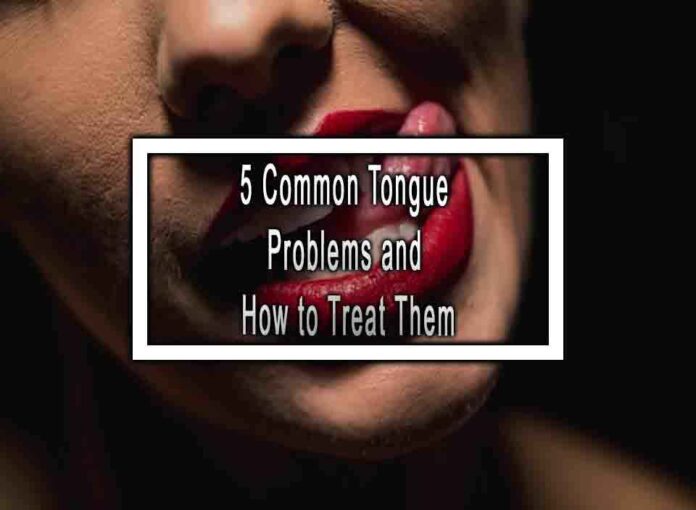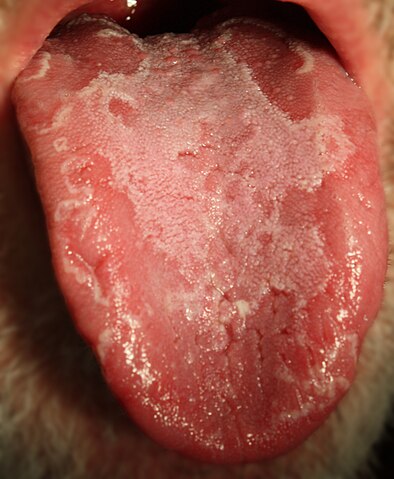Common tongue problems can be uncomfortable and sometimes indicative of underlying health issues. Here are five common tongue problems and how to treat them:
Geographic Tongue (Benign Migratory Glossitis):
- Description: Geographic tongue is characterized by irregular, map-like patterns on the tongue’s surface. These patches may change in shape and location.
- Treatment: Geographic tongue is usually harmless and doesn’t require treatment. If it causes discomfort, over-the-counter topical corticosteroids or antihistamine rinses can provide relief. Maintaining good oral hygiene can help prevent complications.

Oral Thrush (Candidiasis):
- Description: Oral thrush is a fungal infection caused by Candida yeast. It appears as white, creamy patches on the tongue and inner cheeks.
- Treatment: Antifungal medications, such as oral antifungal rinses or lozenges, are typically prescribed by a healthcare provider to treat oral thrush. Maintaining good oral hygiene and reducing sugar intake can also help prevent it.
Canker Sores (Aphthous Ulcers):
- Description: Canker sores are painful, small ulcers that can develop on the tongue, inside the cheeks, or on the lips.
- Treatment: Canker sores usually heal on their own within a week or two. Over-the-counter numbing gels or rinses can help alleviate pain. Avoiding spicy or acidic foods that can irritate the sore and practicing good oral hygiene can aid in the healing process.
Tongue Sores and Blisters:
- Description: Tongue sores and blisters can result from various causes, including trauma, viral infections (such as herpes simplex), or autoimmune conditions.
- Treatment: Treatment depends on the underlying cause. Traumatic injuries often heal on their own but can be managed with pain relief methods. Viral infections may require antiviral medications, while autoimmune conditions need medical evaluation and treatment by a healthcare provider.
Black Hairy Tongue:
- Description: Black hairy tongue occurs when tiny projections on the tongue (papillae) become elongated and discolored, giving the tongue a black or brown appearance.
- Treatment: Practicing good oral hygiene, including gentle brushing of the tongue, can help resolve black hairy tongue. Discontinuing the use of tobacco products, limiting caffeine, and avoiding irritating substances can also aid in recovery.
In addition to these treatments, it’s crucial to maintain good oral hygiene practices, such as brushing your teeth and tongue twice daily, flossing regularly, and staying hydrated. If you experience persistent or severe tongue problems, consult a healthcare provider or dentist for a proper diagnosis and treatment plan. They can identify the underlying cause and recommend appropriate treatment options.












